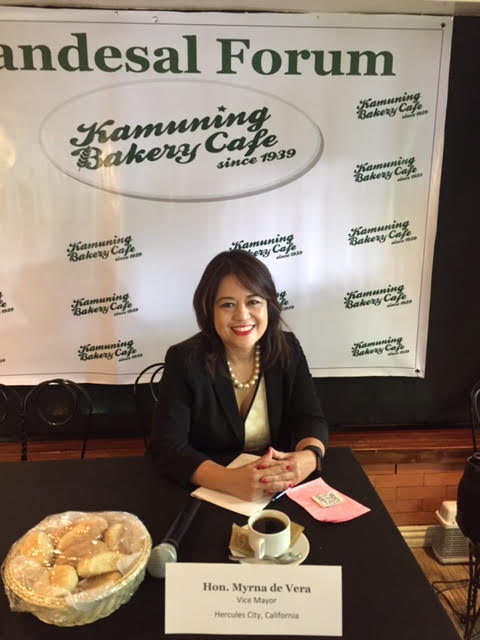What are we really looking for in the next president? #juanvote
by Dean de la Paz, as originally posted on Blog Watch, Philippine Online Chronicles
There are some who imagine that in our latent political arena, the curse of the dumb electorate that exercises his rights and duties of suffrage lackadaisically with little thought applied to more profound matters like social and economic development, his impetus absent of critical discernment on longer term issues and platforms and, finally, his inclinations, a total disregard for political ideology – all these might now be a thing of the past.
Really? Can we assume political maturity when the electorate votes as we do and is similarly inclined as we are inclined? This assumes that we are the judge and jury of political maturity, and that the criteria for such is ours. What we would consider maturity would actually be nothing more than shared sentiment then. Nothing more.
If the criteria however includes measures of social and economic development, an analysis of issues and platforms and a deep regard for political ideology, then perhaps we might be on the threshold of maturity.
Allow us then to test those presumptions against the realities that confront us today as we head into a critical electoral exercise in 2016 where we might be able to confirm political maturity as we’ve long prayed for, or simply continue in our merry and blissful denial of the curse, thus continuing blindly, wallowing in personality politics. After all, it is uncomfortable and insulting being labeled a “Bobotante” (Dumb Voter) and the natural and first knee-jerk reaction is to deny its existence.
Let us begin our introspection with a rather simplistic exercise. Let’s analyze the criteria by which we elect a president, considering both what we might consider as textbook ideals and motherhood statements in tandem with practicality, real politic factors and the propensity for reactionary responses to immediate impetus.
What exactly did we do in 2010 when we elected the son of a recently deceased political icon, subscribing and then surrendering to the packaging and spin, thus imagining the scion to be basically of similar stuff and grain as his parents?
Let us review the underpinnings of the mandate we bequeathed upon Benigno Aquino III.
In 1986, Corazon Aquino was swept into the presidency on the basis of a morality play being played out setting her against a dictatorship effectively pitting white against black or light versus darkness. Simply pick the light and we invariably reject darkness. Pick good and we invariably reject evil.
 While not played out against the same extreme degrees but likewise absent ambiguous shades of grey the mandate of Benigno Aquino III followed basically the same route. For an electorate, weak on fine discernment and even weaker where analysis might take a good deal of brain cells, the reduction of issues to a simple equation of “corrupt versus not corrupt” works. It is hardly the kind of maturity that qualifies where profound analysis of issues and platforms are requisites, but the choice in 2010 seemed like a quantum leap nevertheless.
While not played out against the same extreme degrees but likewise absent ambiguous shades of grey the mandate of Benigno Aquino III followed basically the same route. For an electorate, weak on fine discernment and even weaker where analysis might take a good deal of brain cells, the reduction of issues to a simple equation of “corrupt versus not corrupt” works. It is hardly the kind of maturity that qualifies where profound analysis of issues and platforms are requisites, but the choice in 2010 seemed like a quantum leap nevertheless.
It is unfortunate that Aquino did not live up to the imagery and spin of the campaign where eventually through the corruption within his own administration he has once more introduced shades of grey thus obfuscating the vote for 2016.
In our advocacy for voter education, one of the default tasks is to identify the leadership qualities we want. Oftentimes those are dictated by the qualities of the incumbent rather what we might consider the ideal. And whether we are conscious of it or not, in our highly charged political arena, the tendency is to seek the opposite or its antithesis. Motherhood statements and the ideal enter the picture but only when we deliberately avoid partisanship and attempt at being objective.
Objectivity however helps little and has an uncanny manner of turning irrelevant and bookish.
For instance, who can argue that the next president should not be corrupt? Or that the next president should be caring? Or competent? Who in his right mind would want a president who is corrupt, uncaring and incompetent? From an objective perspective, each of these qualities are undeniably desired and necessary. Those are the ideal. But when we take on a partisan perspective, to advocate for each in relation to latent political realities as happens among idle banter in every beer house and bench fronting sari-sari stores across the archipelago, these suddenly attain deeper, more profound meaning that verges on partisan commentary.
The culprit is our political culture – one our politicians foment, endorse and nourish through their antics. It is our misfortune that Philippine politics is designed for the ignorant. We do not need political science professors or professionals. Ours is not about political theory. It isn’t even about ideology or platforms, the latter tangentially important to the typical Filipino voter. Philippine politics is personality-based, and passionately partisan. We reject candidates on the basis of their being egocentric, abrasive and cacique. We choose those who look kind, caring and approachable. Against such superficial standards, rather than educated political science professionals, in analyzing Philippine politics, loquacious show business talk show hosts would suit us just fine.
Oftentimes, imagining that we’ve added depth into the political debate, we feature and televise chit-chatty talking heads, or self-styled columnists and news readers as analysts. Never mind that a good number, articulate and telegenic as they seem, are uneducated and un-pedigreed by any institution of higher learning worth its salt.
Partisanship, or the politicizing of our choices necessitates espousing one candidate and rejecting another. And the criteria we typically apply can range from the most profound to the most profane. An electoral exercise allows us to choose and because change is imminent, choice presumes a rejection.
While the degree of rejection might be on several levels from complete to moderate, there will always be some reference to the incumbent. It is rare that we would look for someone that will continue with the kind of leadership prevalent in an incumbent. We level up or switch lanes. Either we seek better leaders each time or we seek the opposite. In both cases the kind of leadership and the qualities are dictated by the incumbent.
Allow us then to analyze Benigno Aquino III’s mandate in 2010 if only to appreciate this postulate and what confronts us in 2016.
Let us analyze the options. As before, let us start from the bottom-feeding losers. The most prominent is the Liberal Party’s presumptive candidate. Referencing the incumbent, he simply paints broad strokes that Aquino’s agenda will continue.
Such double-bladed message surrenders to political intrigue as it alludes to Aquino’s 2010 soundbite but is likewise a potshot at a rival.

Mayor Rodrigo Duterte and Senator Grace Poe-Llamanzares found their credibility on the weaknesses of Aquino. Duterte, as a leader with determination and balls, and Llamanzares as un-politicized, caring and fairly intelligent.
For the longest period, Vice President Jejomar Binay led the pack on a record of administrative competence, intelligence, a very visible trait of humility and approachability and as one who genuinely cares for his constituents. His is a combination of ideals and practicality.
Analyze each.
Save for one loser, clearly, invoking both ideals and benchmarks against the incumbent, there is, indeed, a profound desire for change. Where we seek change, there also we will find the aspect of rejection. The for the incumbent and his anointed candidate, that cannot be good.
DISCLOSURE:
Blog Watch is a non-profit and purely volunteer organization dedicated to promoting online freedom of expression and access to truthful and accurate information. It is committed to enhancing the capabilities of netizens for positive and principled action.
Blog Watch is composed of independent-minded bloggers and social media users who leverage new technology tools to advocate social change and serve as a nonpartisan citizens’ watchdog and collective conscience for transparency and good governance.
Blog Watch does not solicit, ask for, demand or receive any financial or material remuneration for involvement in its activities, whether in cash or in kind. Blog Watch operates solely on the resources of its members and the sponsorship of individuals and institutions which identities are appropriately and fully disclosed. (Vibal Foundation for content at their Philippine Online Chroniclesand Smart Communications as our technology partner in the 2013 elections)
The public is warned that should there be any parties claiming to represent Blog Watch and who ask for any kind of material or other consideration for involvement in Blog Watch undertakings are bogus and should not be entertained. Blog Watch further requests that any suspected fraudulent or illegal activity of this nature be immediately referred to Blog Watch or to appropriate law enforcement authorities.
Please contact Noemi Lardizabal-Dado, the editor if you need to verify our roster of volunteer-members and editorial policies at noemidado @ gmail dot com or at contact @ blogwatch. tv.




